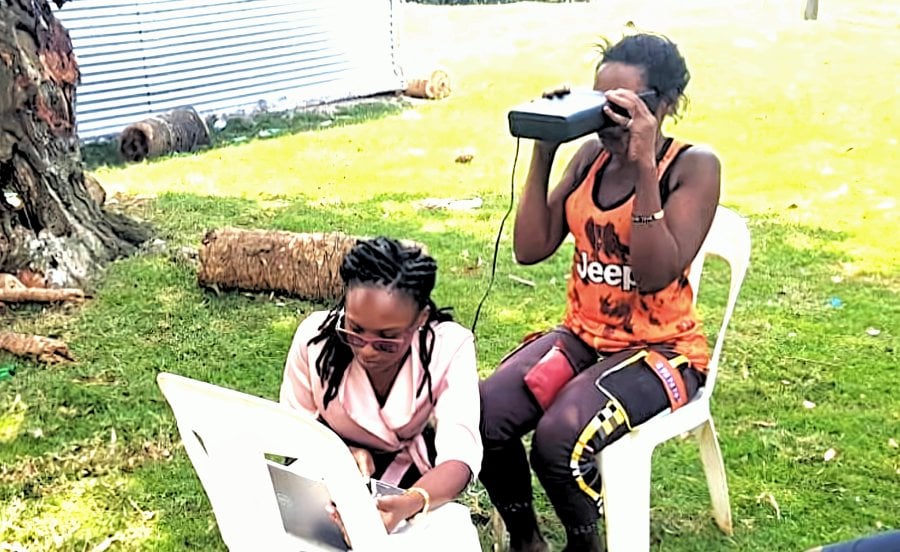
Fishing communities in East Africa are known hubs for seasonal fishing markets that attract itinerant crowds, including fishermen, and sex workers, creating an environment for high HIV transmission. As such, these communities have been the focus of several studies aimed at controlling the spread of the virus. However, in Uganda such studies have been fraught with challenges in data management as a result of manual follow-up mechanisms, such as physical identity cards, which have been unsuccessful in reducing cases of double enrollments, and inaccurate data collection.
An 18-month long ‘Mobility study’ at the MRC/UVRI/LSHTM Uganda Research Unit is testing the efficacy of using mainstream technological data management tools to record and track data and trends of research participants in mobile communities. The study, which targets women at high risk of HIV in Fishing communities at Lambu landing site in central Uganda, uses a hand-held Iris scanner to register participants and track their progress during community engagements.
Since its inception in 2021, researchers in the Mobility study have noted the relevance of the iris scanner as a tool for biometric identification, tracking and follow up in the fishing community. Periodic cross sectional surveys, in-depth interviews and focus group discussions have enabled the consistent capture of data from 300 male and female study participants in Lambu. The non-invasive processes have drastically reduced time spent capturing and updating participant records, and increased the accuracy of health-related interventions carried out in the mobile community.
“It is helpful because people are so mobile and they have a tendency of picking medication from the hospital twice on unscheduled dates. Some people use other people’s visiting cards to get free treatment. But this camera saves the doctors’ time and reduces opportunistic drug misuse by some patients (because) if you go and look through the camera, it tells you that you are already in the system and will be worked on another time”.
Sarah Nakamanya, Researcher, MRC/UVRI/LSHTM, Lambu landing site.
About the Study
The ‘Mobility patterns and the Feasibility of Tracking women at high risk of HIV in Fishing communities of Lake Victoria in Uganda, Kenya and Tanzania’ study is an 18-month three-staged study implemented by the Lake Victoria Consortium for Health Research. It aims to enroll 1200 male and female HIV study participants from mobile communities across the region onto a biotechnological tracking mechanism, and track the relevance and effectiveness of technology in improving the quality of research processes.
The study is funded by the International AIDS Vaccine Initiative (IAVI).
LSHTM's short courses provide opportunities to study specialised topics across a broad range of public and global health fields. From AMR to vaccines, travel medicine to clinical trials, and modelling to malaria, refresh your skills and join one of our short courses today.
